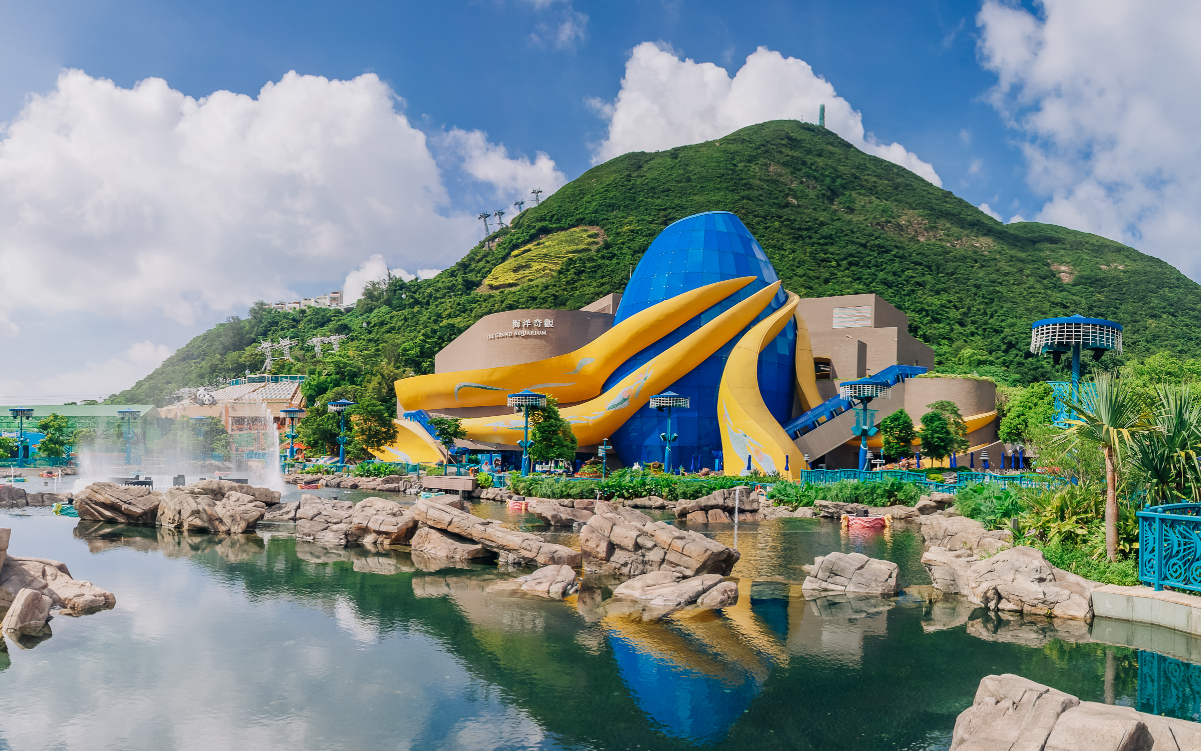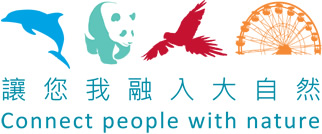오션파크로 떠나는 즐거운 여행에 필요한 모든 것
Ocean Park presented The First Ocean Park International STEAM Education Conference 2019 on 21 and 22 June 2019. The Conference saw 60 education professionals from 11 regions including Australia, Singapore, Sweden, the United Kingdom and the USA share insights on STEAM education, inspiring teachers and educators to integrate STEAM elements in their work, and encourage the next generation to learn from different perspectives while taking part in environmental conservation. The conference hosted more than 800 principals, teachers and professional educators from secondary schools, primary schools and kindergartens from Guangdong, Hong Kong and Macau.
The First Ocean Park International STEAM Education Conference 2019 was organised by Ocean Park Hong Kong in conjunction with the Education Bureau of the Government of the Hong Kong Special Administrative Region; the Faculty of Education, School of Biological Sciences and Department of Geography of The University of Hong Kong (HKU); and the Hong Kong Association for Science and Mathematics Education (HKASME).
The conference opened today and was officiated by Mr Edward Yau Tang-wah, GBS, JP, Secretary for Commerce and Economic Development; Mr Leo Kung Lin-cheng, GBS, JP, Chairman of Ocean Park Corporation; Professor Andy Hor Tzi-sum, Vice-President and Pro-Vice-Chancellor (Research) of HKU; Mr Ming-keung Cheng, Principal Education Officer (Curriculum Development) of Education Bureau; and Mr Jimmy Li Chi-man, Council Chairman of HKASME.
Leo Kung, Chairman of Ocean Park said, “Since its inception, Ocean Park has been committed to becoming a theme park that embraces education and conservation along with entertainment. Over the past 42 years, over one million students from kindergarten to university level have participated in education programmes inspired by experiences with animals, conservation and rides at the Park. To strengthen STEAM education development, the Park held the Ocean Park International STEAM Education Conference to bring together education professionals, researchers and education practitioners from Hong Kong and overseas who are keen to co-create the future of STEAM education. We hope the animal ambassadors, natural resources and attractions at the Park will inspire new STEAM educational ideas, cooperation opportunities, and promote academic exchange and value-added skills.”
Keynote speakers include Dr Aprille Joy Ericsson, an Aerospace Engineer from NASA’s Goddard Space Center who will explain the importance of the Arts in STEAM education through the topic “Putting the ‘A’ in s.t.A.e.m”; Prof Brendan Godley, a conservation science expert from the University of Exeter who will share some of the key lessons he has gathered during his 30-year career in his presentation entitled “Conservation of marine turtles: an education”, illustrating how education can impact conservation of marine turtles; Mr Cesar Jung-Harada, Founder and CEO of MakerBay, Hong Kong, who will speak about “What Hong Kong young people can do to help the ocean (and themselves)” and his experience in engaging students of different ages to initiate activities that help conserve the environment; and Prof Peter Charles Taylor from Murdoch University, Australia, who will talk about “Transformative STEAM Education: Enacting the Moral Imperative of Education for Sustainable Development”, where he explains how a transformative philosophy of education can help save our planetary ecosystems.
Awards were also presented to the winners of The First Ocean Park International Conservation STEAM Competition and the Ocean Park x HKU Hackathon, with the outstanding work from the two student competitions being showcased at the conference venue.
The First Ocean Park International Conservation STEAM Competition proposes innovative solutions for global environmental issues
Ocean Park also ran The First Ocean Park International Conservation STEAM Competition to encourage STEAM leaning. The competition aims to stimulate students to apply their knowledge and skills in STEAM-related disciplines to solve real-life problems. Students from around the world were invited to submit creative proposals with innovative solutions for global environmental issues. The theme of the competition was “STEAM and Marine Conservation”, with participants selecting one of three topics:
The First Ocean Park International STEAM Education Conference 2019 was organised by Ocean Park Hong Kong in conjunction with the Education Bureau of the Government of the Hong Kong Special Administrative Region; the Faculty of Education, School of Biological Sciences and Department of Geography of The University of Hong Kong (HKU); and the Hong Kong Association for Science and Mathematics Education (HKASME).
The conference opened today and was officiated by Mr Edward Yau Tang-wah, GBS, JP, Secretary for Commerce and Economic Development; Mr Leo Kung Lin-cheng, GBS, JP, Chairman of Ocean Park Corporation; Professor Andy Hor Tzi-sum, Vice-President and Pro-Vice-Chancellor (Research) of HKU; Mr Ming-keung Cheng, Principal Education Officer (Curriculum Development) of Education Bureau; and Mr Jimmy Li Chi-man, Council Chairman of HKASME.
Leo Kung, Chairman of Ocean Park said, “Since its inception, Ocean Park has been committed to becoming a theme park that embraces education and conservation along with entertainment. Over the past 42 years, over one million students from kindergarten to university level have participated in education programmes inspired by experiences with animals, conservation and rides at the Park. To strengthen STEAM education development, the Park held the Ocean Park International STEAM Education Conference to bring together education professionals, researchers and education practitioners from Hong Kong and overseas who are keen to co-create the future of STEAM education. We hope the animal ambassadors, natural resources and attractions at the Park will inspire new STEAM educational ideas, cooperation opportunities, and promote academic exchange and value-added skills.”
Keynote speakers include Dr Aprille Joy Ericsson, an Aerospace Engineer from NASA’s Goddard Space Center who will explain the importance of the Arts in STEAM education through the topic “Putting the ‘A’ in s.t.A.e.m”; Prof Brendan Godley, a conservation science expert from the University of Exeter who will share some of the key lessons he has gathered during his 30-year career in his presentation entitled “Conservation of marine turtles: an education”, illustrating how education can impact conservation of marine turtles; Mr Cesar Jung-Harada, Founder and CEO of MakerBay, Hong Kong, who will speak about “What Hong Kong young people can do to help the ocean (and themselves)” and his experience in engaging students of different ages to initiate activities that help conserve the environment; and Prof Peter Charles Taylor from Murdoch University, Australia, who will talk about “Transformative STEAM Education: Enacting the Moral Imperative of Education for Sustainable Development”, where he explains how a transformative philosophy of education can help save our planetary ecosystems.
Awards were also presented to the winners of The First Ocean Park International Conservation STEAM Competition and the Ocean Park x HKU Hackathon, with the outstanding work from the two student competitions being showcased at the conference venue.
The First Ocean Park International Conservation STEAM Competition proposes innovative solutions for global environmental issues
Ocean Park also ran The First Ocean Park International Conservation STEAM Competition to encourage STEAM leaning. The competition aims to stimulate students to apply their knowledge and skills in STEAM-related disciplines to solve real-life problems. Students from around the world were invited to submit creative proposals with innovative solutions for global environmental issues. The theme of the competition was “STEAM and Marine Conservation”, with participants selecting one of three topics:
- STEAM Action – Propose technology solutions to clean marine debris and conserve marine biodiversity.
- STEAM Promotion – Create art products to promote marine debris reduction or biodiversity conservation.
- STEAM Public Awareness – Use technology (e.g. Virtual Reality) to raise awareness among the general public of the importance of reducing marine debris and conserving biodiversity.
14 selected teams presented their proposals at the Final Round Presentation on 20 June 2019. These include exciting creative projects which apply Virtual Reality technology to simulate real-time scenarios under the sea, enabling the public to learn about the oceans and the pollution from the eyes of marine animals; production of fish-shaped devices capable of identifying and recycling garbage under the sea with infrared sensors; and robots that can automate waste identification, location and sampling processes.
Ocean Park x HKU Hackathon – resolving operational issues at the Park with innovative solutions
An exciting undertaking co-organised with iDendron, the Innovation and Entrepreneurship Hub of HKU, the Ocean Park x HKU Hackathon provided an invaluable experiential learning opportunity where students were given a week to develop innovative solutions for the Park in the fields of visitor experience, education and conservation. Students challenged themselves to help resolve operational and relevant issues at the Park, working with professionals and academics to generate solutions within the theme park business environment. The best solutions were pitched to industry professionals and winning students may have the enviable opportunity of seeing their solutions come to fruition and be implemented in the Park.
Ocean Park x HKU Hackathon – resolving operational issues at the Park with innovative solutions
An exciting undertaking co-organised with iDendron, the Innovation and Entrepreneurship Hub of HKU, the Ocean Park x HKU Hackathon provided an invaluable experiential learning opportunity where students were given a week to develop innovative solutions for the Park in the fields of visitor experience, education and conservation. Students challenged themselves to help resolve operational and relevant issues at the Park, working with professionals and academics to generate solutions within the theme park business environment. The best solutions were pitched to industry professionals and winning students may have the enviable opportunity of seeing their solutions come to fruition and be implemented in the Park.







